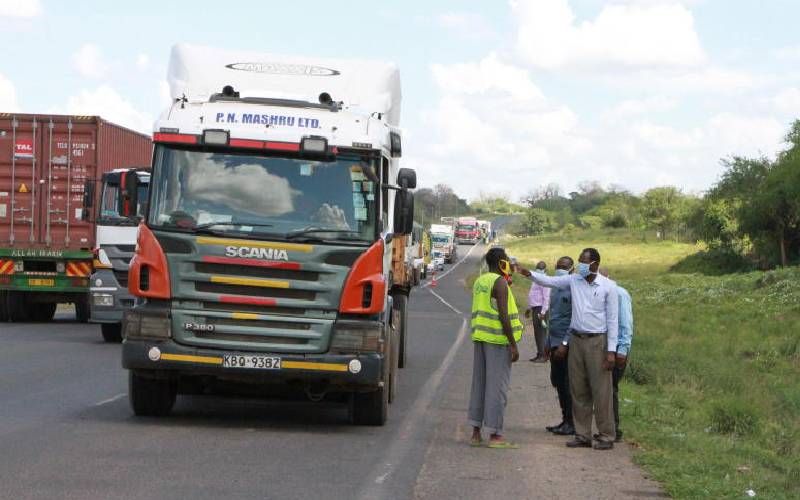×
The Standard e-Paper
Fearless, Trusted News

Kenyan truck drivers want clearance of cargo destined for Rwanda and Tanzania at the Mombasa port suspended after the two countries locked them out due to the Covid-19 crisis.
The transporters, who had signed agreements with their clients in Rwanda and Tanzania, have protested what they term relay driving and called on the Kenyan government to stop cargo clearance until the issue is resolved.